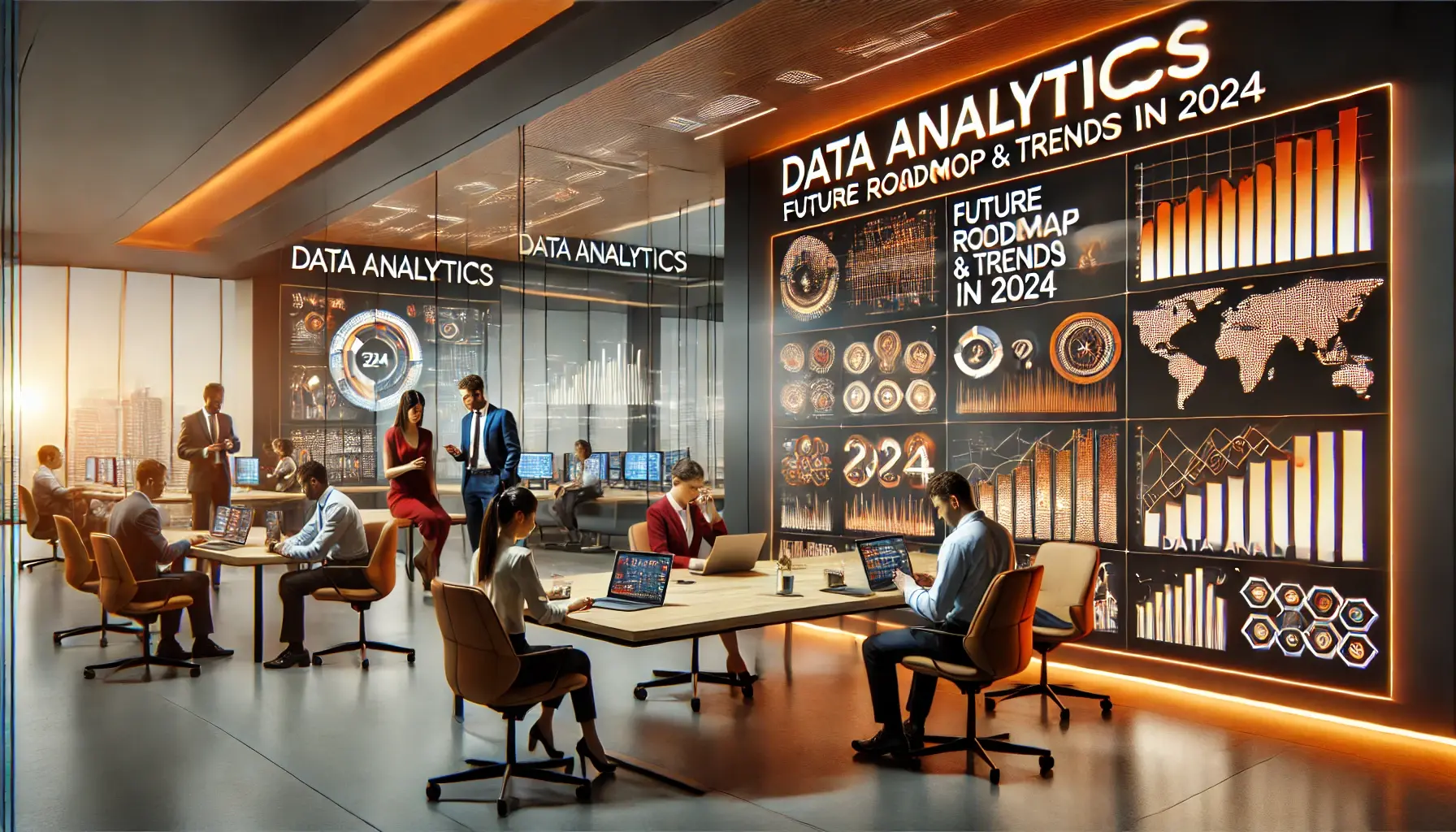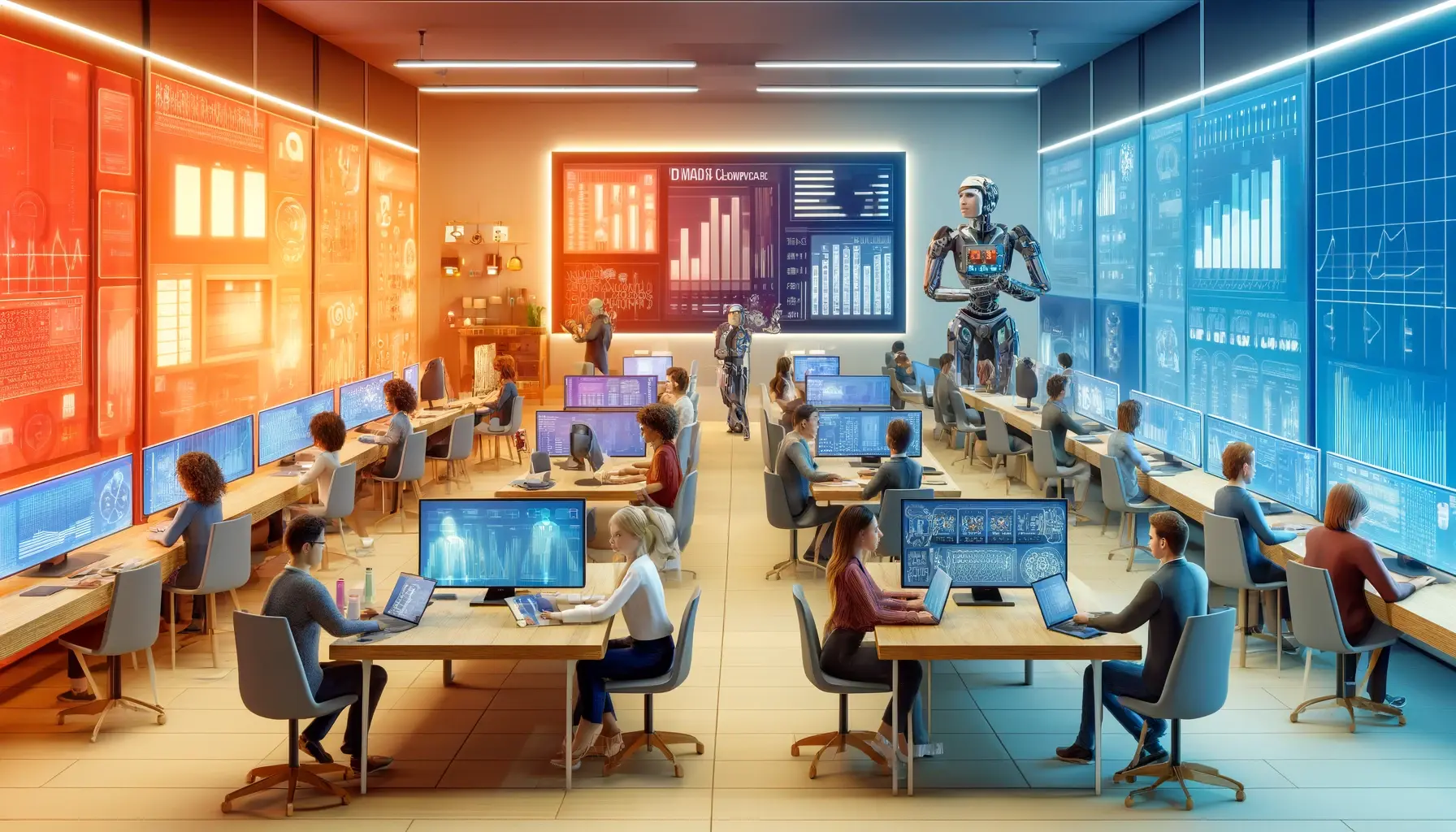5 min read
Data Analytics: Future Roadmap & Trends for 2024
Data Analytics Roadmap 2024: A Comprehensive Guide to Data-driven SuccessIntroductionIn today's technology-driven world, data analytics has become a...
5 min read
![]() The Amazing Team at Skills Data Analytics
:
Sep 5, 2024 5:47:18 AM
The Amazing Team at Skills Data Analytics
:
Sep 5, 2024 5:47:18 AM
Data science has become a crucial component of business strategy, healthcare, finance, and virtually every other industry over the past decade. The ability to extract actionable insights from vast amounts of data has transformed how organizations operate. However, as technology continues to evolve—especially with the rise of artificial intelligence (AI) and machine learning—questions are being raised about the future of data science. Is data science here to stay, or will it be overshadowed by other technologies? In this article, we’ll explore the future of data science, focusing on its relevance in the USA and the role it will play in the years to come.
Before diving into the future, it’s important to understand the current landscape of data science. In the USA, data science has experienced explosive growth. According to the U.S. Bureau of Labor Statistics, employment of data scientists is projected to grow 36% from 2021 to 2031, much faster than the average for all occupations. This growth is driven by the increasing reliance on data for decision-making in businesses, healthcare, government, and other sectors.
Data scientists in the USA are tasked with analyzing complex datasets to identify trends, develop predictive models, and provide insights that can lead to better business outcomes. Whether it’s optimizing supply chains, improving customer experience, or predicting disease outbreaks, data science plays a pivotal role in driving innovation.
One of the most significant developments in recent years has been the rise of AI and automation. AI systems, particularly those using machine learning, can process and analyze data at a scale and speed that far surpasses human capabilities. This has led some to speculate that AI could eventually replace data scientists.
However, the reality is more nuanced. While AI can automate certain aspects of data science—such as data cleaning, processing, and even basic predictive modeling—it cannot replicate the creativity, critical thinking, and domain expertise that data scientists bring to the table. AI can assist data scientists, but it cannot replace them. Instead, data scientists will likely need to develop new skills that complement AI, such as expertise in AI ethics, data governance, and advanced statistical analysis.
As AI and automation become more prevalent, the role of data scientists is expected to evolve. Rather than focusing solely on data analysis, data scientists in the future will need to take on more strategic and interdisciplinary roles. This could involve collaborating with AI systems to develop more accurate models, ensuring that AI-generated insights are aligned with business goals, and addressing ethical concerns related to data use.
In the USA, where businesses are increasingly leveraging AI for competitive advantage, data scientists will be crucial in ensuring that AI systems are used responsibly and effectively. This will require a deep understanding of both data science and AI, as well as the ability to navigate complex regulatory environments.
As the field of data science evolves, so too will the skills and education required to succeed in it. Traditional data science skills—such as programming, statistical analysis, and data visualization—will continue to be important. However, new skills will also become essential, including:
In addition to the broader trends shaping the future of data science, there are also industry-specific trends that are worth noting:
In addition to its impact on business, data science is also playing a growing role in government and public policy in the USA. From analyzing census data to optimizing public transportation systems, data science is helping government agencies make more informed decisions. In the wake of the COVID-19 pandemic, data science has also been critical in tracking the spread of the virus, allocating resources, and developing public health strategies.
As data becomes increasingly central to public policy, the need for data scientists who can work within the unique constraints of the public sector will grow. This includes not only technical skills but also an understanding of the legal and ethical considerations involved in using data for public good.
So, is there a future for data science? The answer is a resounding yes. While the field is evolving, the need for skilled data scientists is only expected to grow. In the USA, where data-driven decision-making is becoming the norm across industries, data scientists will continue to play a critical role in shaping the future of business, healthcare, finance, government, and more.
For those looking to enter or advance in the field of data science, now is the time to invest in education and training. Programs like the Skills Data Analytics bootcamp offer comprehensive courses that equip you with the skills needed to thrive in this dynamic industry. Whether you’re just starting or looking to stay ahead of the curve, acquiring the right skills will be key to securing your future in data science.
No, data science will not become obsolete. While AI can automate certain tasks, data scientists bring critical thinking, creativity, and domain expertise that AI cannot replicate. The role of data scientists will evolve, but they will remain essential in guiding AI systems and interpreting their outputs.
In addition to traditional data science skills like programming and statistical analysis, data scientists will need to develop expertise in AI and machine learning, data ethics and governance, domain-specific knowledge, and communication skills. These skills will be critical for staying relevant in the evolving field of data science.
Industries such as healthcare, finance, retail, and government will continue to rely on data science to drive innovation and improve decision-making. In the USA, data science is becoming increasingly important across all sectors, making it a valuable and in-demand skill set.

5 min read
Data Analytics Roadmap 2024: A Comprehensive Guide to Data-driven SuccessIntroductionIn today's technology-driven world, data analytics has become a...

7 min read
Introduction Machine learning (ML) is a subset of artificial intelligence (AI) that focuses on developing algorithms and statistical models that...

4 min read
Will AI Replace Data Analysts? A Comprehensive ExplorationIntroduction:The rise of artificial intelligence (AI) has revolutionized industries across...